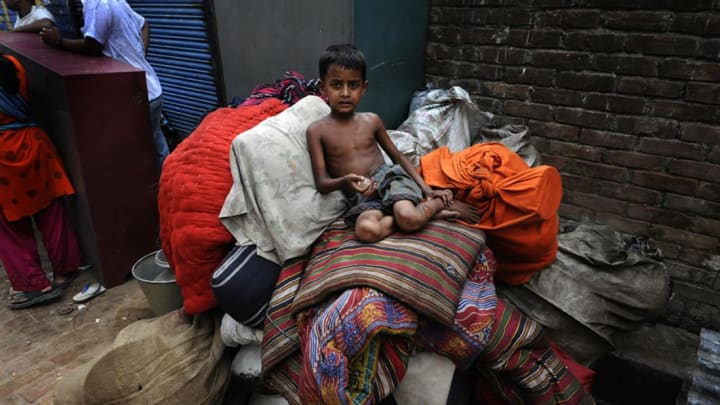While less-than-average height might not seem like a major health concern, 165 million children worldwide are considered not just small, but stunted. This lack of growth is associated with both cognitive disabilities and an increased risk of death before age five.
The majority of these cases are found in developing countries, and in particular, Bangladesh, and are thought to be related to a condition known as environmental enteropathy (EE), a chronic, low-level gut inflammation caused by fecal bacterial contamination. Building on the research of microbiologist William Petri, researchers from the U.S. and Bangladesh hypothesized that the link between EE and stunting may be found in a condition known as small intestinal bacterial overgrowth, or SIBO. Their results of their research were recently published in the journal Mbio.
To better understand the causes of this condition, researchers studied 103 children living in an urban slum of Mirpur, Dhaka, monitoring them from birth to age 2. All of the children were stunted in their growth despite having received nutrition, vaccinations, and medical care. For the study, they gave the now 2-year-old children glucose syrup and tested their breath for hydrogen.
“If you have this overgrowth of bacteria in the small intestine, the bacteria actually beat you to the glucose, and they utilize it themselves and ferment it. One of the products they produce is hydrogen, which you exhale,” lead author Jeff Donowitz, a pediatric infectious disease specialist at Virginia Commonwealth University and fellow at Virginia School of Medicine, tells mental_floss. Then, they measured the children’s breath in 30-minute intervals after the glucose was administered. “In a child with overgrowth, that hydrogen level will peak up over time, and in a normal subject it will stay the same,” Donowitz explains. Of the children they tested, 16.7 percent had signs of SIBO in their breath.
The incidence of SIBO was very closely tied to a lack of sanitation. “The children who have an open drain or sewer running outside of their house, or the children who got their water from some source other than the municipal water supply, were predisposed to getting SIBO in our model,” he says.
The researchers suspect that SIBO leads to malnourishment, or an inability to absorb nutrients needed for proper growth. “We can’t say overgrowth causes stunting, but we know there’s a sort of malnourishment syndrome from studies in the '80s on children in the U.S. with malformations," Donowitz says. "If you measure the length of a child from birth to age two, compared to all other children of that age according to growth charts provided by the WHO [World Health Organization], children who fell off growth charts for length were predisposed to bacterial overgrowth.”
The good news about this research is that bacterial overgrowth can be treated with antibiotics. But there's a caveat. “The problem is that right now, we don’t know when to give a child antibiotics for this condition, and large scale use of antibiotics is a dangerous thing, especially when it comes to the development of antibiotic resistance,” he says.
To determine the appropriate timing for administering antibiotics, the research team is beginning a longitudinal study that will follow another group of children from Mirpur from birth to two years, and will do breath testing at several time points. “If we understand which kids are predisposed and the time point at which intervention can help, we should have a more evidence-based approach to dealing with the problem,” Donowitz says.
Further microbiome studies will also be conducted to determine exactly which bacteria are causing the overgrowth, which will help determine the types of antibiotics to give.
Research on environmental enteropathy has been underfunded as it’s rarely found in American children, except in the case of anatomical abnormalities. It is prevalent in developing countries such as Bangladesh, Myanmar, and many parts of Africa—all, notably, countries with higher incidences of poverty.
Donowitz concludes, “If these nations are going to get out of poverty they’re in, dying of diarrheal disease and rotovirus diarrhea, which are preventable, and growth stunting, are all going to need to be addressed.”
